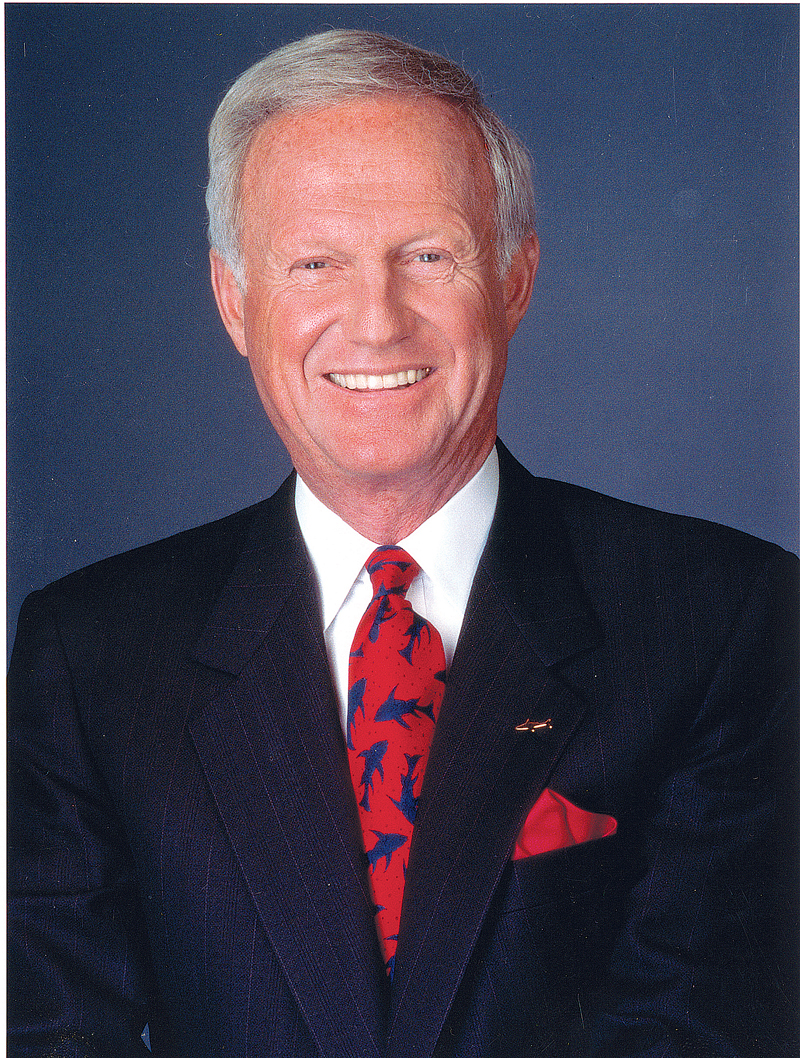Jack Welch, former chairman and CEO of General Electric Co., talked about the three jobs he had growing up in Salem, Mass.: caddying, punching holes in a piece of cork and selling shoes. He loved being out on the golf course because he’d hear about the big deals being made by affluent businessmen, according to a story on the Reader’s Digest website.
As for the second job, punching holes into a piece of cork for a Parker Brothers game called “Dig” was his first glimpse into monotony. “It lasted about a month,” he said, “and I concluded that I never wanted to do anything like that again – ever.”
It was through his third job, selling shoes, that he learned the basic tenet of business: close the deal. Every time someone walked into that store, he said, he felt he was going to bat and taking a swing.
“Today I believe that the worst sin in running a big company is to manage its size rather than using that size,” he said. “The advantage of size is the resources it gives you to go to bat often.”
Risk is necessary for a company to grow and prosper. Pharmaceutical manufacturers always take a risk when bringing drugs to market. But because they are willing to take these risks, lifesaving drugs have dramatically extended our life expectancy.
Risk is necessary for a company to grow and prosper.
Business is filled with stories of companies that took risks and succeeded. My favorite quote on risk-taking is from one of my heroes, Earl Nightingale, a pioneer of the personal development industry. Earl said, “You can measure opportunity with the same yardstick that measures the risk involved. They go together.”
King Camp Gillette, who founded the company that bears his name, dreamed of developing a disposable shaving razor. Gillette worked four years to develop a razor sharp enough to provide a clean shave and yet cheap enough to be thrown away when dull. It took him another six years to get it in stores. However, his disposable razor went on to transform the shaving industry.
Mary Kay Ash similarly revolutionized women’s beauty products. Her first home show in 1963 produced sales of only $1.50. However, after modifying her selling techniques, refining her packaging and adjusting her attitude, she had sales of $34,000 in her first year. Mary Kay Cosmetics today has more than 3 million consultants in 37 countries and sales in excess of $3 billion.
Spanx founder Sara Blakely knew little about business and was told over and over that her idea of seamless pantyhose and women’s shapewear was crazy. Today, her undergarments are everywhere.
Perhaps the biggest threat to businesses is remaining comfortable. The co-founders of Whole Foods Market dared to leave a successful grocery store business in the 1970s and invest in a supermarket devoted exclusively to natural foods. Whole Foods is one of the most successful supermarkets today.
A story in “Art and Fear” by David Bayles and Ted Orland illustrates the power of taking chances and risking failure when you’re trying to achieve something of quality.
On the first day of class, a ceramics teacher announced that he was putting his students into two groups. Half the students would be graded on quantity of works produced, the other half on the quality of just one work. On the final day of class, the instructor looked at the pots from both groups and realized that the best pots – those with the most creative designs and those that seemed most beautiful – all came from the group graded on quantity.
The authors noted: “It seems that while the ‘quantity’ group was busily churning out piles of work – and learning from their mistakes – the ‘quality’ group had sat theorizing about perfection, and in the end had little more to show for their efforts than grandiose theories and a pile of dead clay.”
Mackay’s Moral: Even a turtle sticks its neck out once in a while.
Harvey Mackay is the author of the New York Times best-seller “Swim With the Sharks Without Being Eaten Alive.” He can be reached through his website, www.harveymackay.com.











